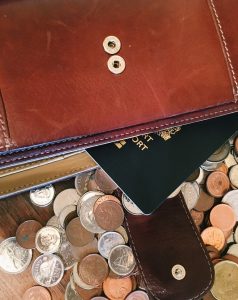Choosing the Right Forex Broker: A Key to Successful Trading
When it comes to trading in the forex market, one of the most crucial decisions you will make is selecting the right forex broker. A forex broker acts as an intermediary between you, the trader, and the global forex market, providing you with a platform to execute trades, access to liquidity, and various other trading services. Therefore, it is imperative to choose a reliable and reputable forex broker that meets your specific trading needs. In this article, we will discuss the factors to consider when selecting a forex broker and how it can significantly impact your trading success.
Regulation and Security:
The first and foremost factor to consider when choosing a forex broker is its regulatory status and security measures. A regulated broker is subject to the oversight of a regulatory authority, which ensures that the broker adheres to strict financial and ethical standards. Regulatory bodies such as the Financial Conduct Authority (FCA) in the UK, the Australian Securities and Investments Commission (ASIC), and the Commodity Futures Trading Commission (CFTC) in the United States are some of the most reputable regulatory authorities in the forex industry. By choosing a regulated broker, you can have peace of mind knowing that your funds are protected, and the broker operates in a transparent and fair manner.
Trading Platform and Tools:
The trading platform provided by a forex broker is the primary tool you will use to execute your trades. It is essential to choose a broker that offers a user-friendly and reliable trading platform that suits your trading style and preferences. MetaTrader 4 (MT4) and MetaTrader 5 (MT5) are two of the most popular trading platforms in the forex market, known for their extensive range of technical analysis tools, customizable charts, and automated trading capabilities. Additionally, the broker should provide access to real-time market data, news, and educational resources to help you make informed trading decisions.
Trading Costs and Spreads:
Another crucial factor to consider when selecting a forex broker is the cost of trading. Forex brokers generate revenue through spreads, which is the difference between the buying and selling price of a currency pair. Typically, brokers offer fixed or variable spreads, with variable spreads typically being tighter during liquid market conditions. It is important to compare spreads across different brokers to ensure you are getting competitive rates. In addition to spreads, brokers may charge commissions on certain types of trading accounts. It is advisable to choose a broker with transparent and competitive pricing structures to minimize your trading costs.
Leverage and Margin Requirements:
Leverage allows traders to control larger positions in the market with a smaller amount of capital. While leverage can amplify profits, it also increases the risk of losses. Different brokers offer varying leverage ratios, so it is important to choose a broker that offers a leverage level suitable for your risk appetite and trading strategy. Additionally, consider the margin requirements imposed by the broker, which determine the amount of capital you need to have in your trading account to open and maintain positions. Brokers with lower margin requirements provide traders with greater flexibility and potentially higher returns on investment.
Customer Support:
In the fast-paced world of forex trading, access to prompt and reliable customer support is essential. Choose a broker that offers multiple channels of communication, such as phone, email, and live chat, to address any technical issues or trading-related queries you may have. Additionally, consider the broker’s availability during trading hours, as some brokers provide 24/7 customer support, which can be especially helpful if you are trading in different time zones.
Account Types and Deposit/Withdrawal Options:
Forex brokers offer various types of trading accounts to cater to the needs of different traders. These can include standard accounts, mini accounts, and managed accounts, each with different minimum deposit requirements and trading conditions. Choose a broker that offers account types that align with your trading goals and capital availability. Furthermore, consider the deposit and withdrawal options provided by the broker. Ideally, the broker should offer convenient and secure methods for depositing and withdrawing funds, such as bank transfers, credit/debit cards, and electronic payment systems.
In conclusion, choosing the right forex broker is a crucial step towards achieving success in the forex market. By considering factors such as regulation and security, trading platform and tools, trading costs and spreads, leverage and margin requirements, customer support, and account types and deposit/withdrawal options, you can find a broker that meets your specific trading needs. Remember, a reliable and reputable forex broker can provide you with the necessary tools and support to execute trades effectively, manage risks, and ultimately enhance your trading success.






